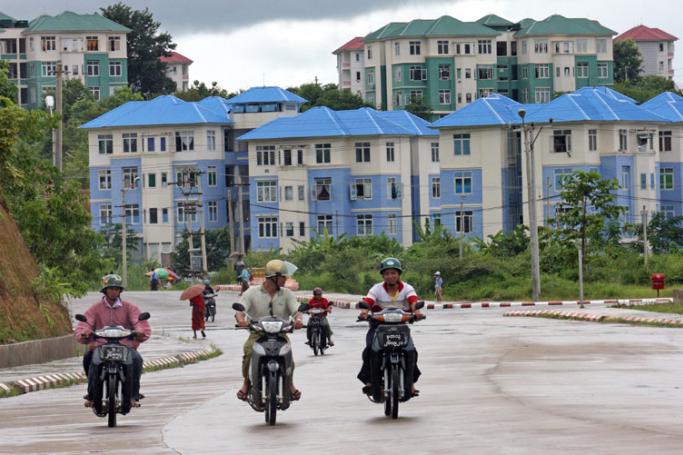The National League for Democracy (NLD) of Myanmar led by Aung San Suu Kyi entered the political arena in 2016 after scoring an overwhelming victory in the general elections. As a universally recognized democratic government, it is hoped the NLD government would bring a fresh atmosphere to the country and new life to the people.
Shortly after the NLD government took power, it demanded various ministries issue a "100-day" plan mapping out their priorities in the first few months. It also set up economic organs including the National Economic Coordination Committee and the Investment Commission, promulgated important laws such as the Investment Law and the Company Law and revealed a 12-point economic policy with the aim to quickly revitalize the economy.
Two years on, Myanmar has expanded international participation, improved environmental governance and strengthened the crackdown on corruption. However, constrained by the government's governing abilities and efficiency as well as security factors, the investment and business environment of the country has not improved significantly. The past two years have witnessed slowing down economic growth, declining foreign direct investment and rising public discontent with the government.
There are four reasons for the weak development of Myanmar economy.
First, the rise of populism has discouraged foreign investors. Myanmar is a haven of NGOs. Due to lack of legal constraints, NGOs have kept growing in the country, exercising influence on public opinion. With the deepening of the democratic process in Myanmar, the power of NGOs and the impact of public opinion on national policies have continued to expand.
However, in the social context of Myanmar, there are certain blind and irrational factors involved in the expression of public opinion. Influenced by public opinion, the NLD government has high expectations of foreign investment and lays more emphasis on maximizing its own interests while ignoring the interest of investors. The rise of populism has undermined the enthusiasm of foreign investors and kept them away.
Resource nationalism is another key factor impeding economic development. Resource nationalism is the tendency of governments to realize development goals through economic means of asserting control over natural resources located on their territory. The NLD government has tightened its grip on resources, controlled the ownership of resource enterprises and raised the legal and environmental threshold for foreign investment in the resource sector.
Although effective control over resources is conducive to sustainable economic development, Myanmar's resource nationalism policy leads to the underdevelopment of the resource-based economy, which makes it hard to meet the basic energy demands of economic development and people's lives. Multiple restrictions and too much intervention make it difficult for Myanmar to convert its resource advantages into economic impetus.
Besides, the wave of environmental politics has jeopardized Myanmar's attractiveness and competitiveness. The democratic transition revitalized Myanmar's civil society and a large number of environmental protection organizations sprung up. Through cooperation with major political parties in the country, these organizations have gradually become an important force in environmental politics.
The development of environmental politics has stimulated people's awareness of environmental protection and political participation, but the public's environmental consciousness has been used by political groups to incite environmental movements. Projects were suspended in the name of environmental protection, which seriously dampened investors' confidence. Radical environmental politics has also disrupted smooth transition and rapid development of the economy.
Last but not the least, with China-US competition intensifying, Southeast Asian countries are confronted with the dilemma of choosing between the two big powers. The NLD government has adopted a strategy of neither drifting apart from China nor being overly dependent on it. Compared to countries such as Cambodia and Laos, such a strategy has put Myanmar in a disadvantageous position in regional competition.
Myanmar to some extent is missing opportunities. It has lagged Cambodia in participating in the Belt and Road initiative and in regional competition on the Indo-China Peninsula. Given Myanmar's inconsistent China policy, Chinese enterprises also harbor more misgivings about investing in the country.
The author is an assistant fellow with the One Belt-One Road Strategy Institute, Tsinghua University.
Courtesy [email protected]
You are viewing the old site.
Please update your bookmark to https://eng.mizzima.com.
Mizzima Weekly Magazine Issue...
14 December 2023
Spring Revolution Daily News f...
13 December 2023
New UK Burma sanctions welcome...
13 December 2023
Spring Revolution Daily News f...
12 December 2023
Spring Revolution Daily News f...
11 December 2023
Spring Revolution Daily News f...
08 December 2023
Spring Revolution Daily News f...
07 December 2023
Diaspora journalists increasin...
07 December 2023
Yoga Blossoms in Yangon












